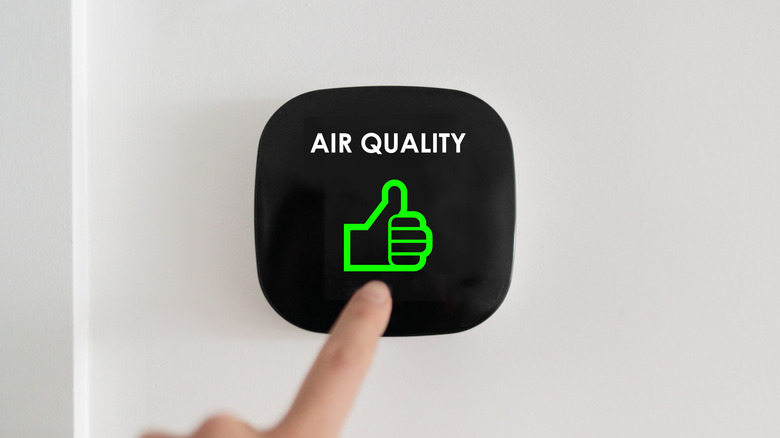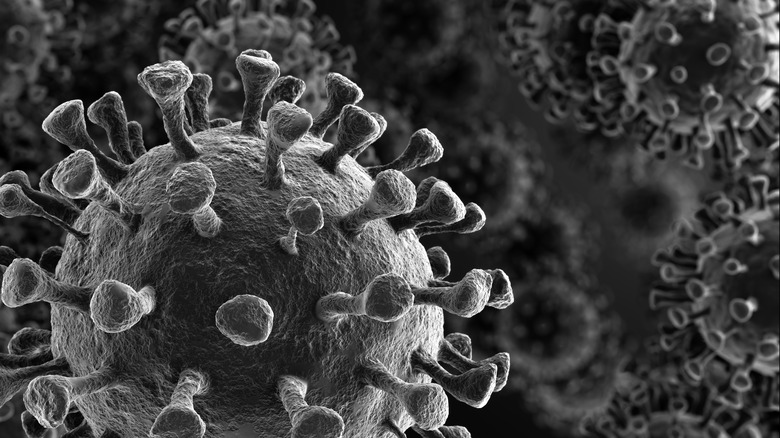Study Shows Antimicrobial Air Filters Can Kill COVID-19 Particles In 30 Seconds
Face masks are intended to limit the spread of airborne pathogens, including COVID-19, though they come with some big limitations. In addition to ensuring a proper fit, individuals must select properly made masks that effectively filter some of the droplets expelled while breathing, talking, and sneezing or coughing. Because of this, we've seen experts call for improved indoor ventilation and air filtration systems to, among other things, help curb the spread of this particular virus.
A new study published in Nature's "Scientific Reports" journal evaluates the use of air filters coated with an antiviral and antimicrobial "novel biocide" designed to kill viruses, bacteria, and other pathogens that may spread through the air in tiny droplets. In addition to lab conditions, the filters were put to the test in a trial on UK trains, where the scientists say they proved very effective at reducing the germs otherwise spread through the air circulation systems.
Using air filters to make public spaces safer
The study details the risk of contracting airborne illnesses — in this case, COVID-19 — while on public transportation that uses air conditioners with recycled air. Of particular note, the researchers cite data that showed substantially higher rates of respiratory infections among people in the UK who traveled on a bus or tram within a few days of developing symptoms. These instances highlight the importance of air filtration systems, though it's necessary to determine which filters work best against the diseases we most commonly face in public spaces.
The experts also focus on COVID-19 and the risk one faces when using public transportation, citing past research that found high numbers of new cases among people who used buses and similar public options during the pandemic. Air conditioners set to recycle air may be to blame for these large case numbers among commuters, which is where air filtration systems come in.
HEPA filters are one popular option, but the new study points out that not only are they energy-intensive, but they also fail to actively destroy the airborne pathogens, potentially allowing them to "proliferate within the air filtration system." The researchers behind this study went a different direction and instead applied chlorhexidine digluconate (CHDG) as a coating on air filter fibers, finding that it performs well against COVID-19.
"Novel" coating proves useful on public trains
Air filters coated with CHDG allowed the same sort of airflow as untreated filters when installed in commercial air conditioners, according to the study, which noted the coating didn't have any sort of noticeable impact on the filter's fibers. Using testing methods, the scientists found common pathogens, including E. coli, were rapidly destroyed by the coating as they passed through the filter — in some cases, the germs were eliminated within a single minute after contact.
Of particular note, the study found this coating also proved very effective against the virus that causes COVID-19, making it a promising method for improving indoor air quality as the pandemic drags on. The filters were found to maintain their effectiveness over long periods of use, too, with the study concluding, "The filter treatments are durable throughout the existing maintenance life cycle of the filter and have been demonstrated to work in an operational environment."


